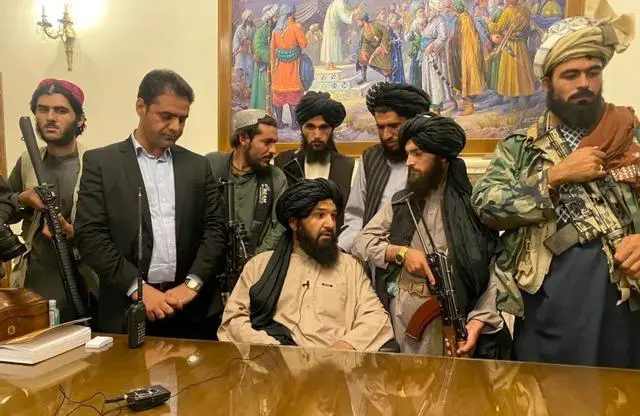Author: Prof. Engr. Zamir Ahmed Awan, Sinologist (ex-Diplomat), Editor, Analyst, Non-Resident Fellow of CCG (Center for China and Globalization), National University of Sciences and Technology (NUST), Islamabad, Pakistan. (E-mail: [email protected]).
Two decades since the Taliban regime was ousted from Kabul, after the false flag operation of “9/11”, they are back in power and putting a new political agenda into practice. While forming a more inclusive government, top posts have been handed to veteran leaders who played key roles in their infamous 1996-2001 rule. After twenty years, they have become more mature, refined, and reformed. The bitter experience, they have passed, has taught them a lot. Today, the Taliban are gentle, kind, and smart. They understand global politics and diplomacy and are in no hurry to announce a new Government formally.
Their immediate challenges are to keep the country safe and calm, and till now, no violence, no killing, no unrest has been seen anywhere in the country. Whatsoever, the unholy Western media, try to spread propaganda, but on the ground, things are not bad. The public is calm and satisfied, businesses are in a routine, government offices are functioning, schools are opened, girls are getting an education, women are working in a routine matter. Law and order situation has perfect, people feel safer and fearlessly active in routine life.
Of course, economic issues are there, as the Western world has imposed economic sanctions and is coercing the Taliban economically. The US has frozen its assets, IMF, World Bank, and other International Financial Institutions are squeezing them. In fact, few countries are making conspiracies to make Afghanistan destabilize and promoting toward civil war. They wanted to achieve, what they could not achieve in a two-decades-long war. Yet the Taliban are in no hurry and trying to overcome all challenges one by one. Afghanistan is facing a financial crisis following the takeover, with much of the international aid that had propped up the economy frozen. “The interactions with the international community… are going to continue,” chief Taliban spokesman Zabihullah Mujahid said. “We are going to be working on our natural resources and our resources in order to revitalize our economy.” But it remains unclear how the Taliban will find the funds to pay civil servants’ salaries — or to support critical infrastructure to keep the lights on, water running, and telecommunications working. The Taliban’s current annual income, much of which is raised from taxation, is estimated to be somewhere between as low as $300 million and as high as $1.5 billion. But while those funds bankrolled a successful insurgency, it is nowhere near meeting the needs of running a nation, experts say.
Hibatullah Akhundzada, the Taliban’s secretive supreme leader, has said the government would “work hard towards upholding Islamic rules and sharia law”. Which is based on justice, peace, and responsibility. Islam is a region of peace and promotes peace. The western world has distorted Islam and Shariah, but the Taliban intend to exercise the Islam of the Holy Prophet Muhammad Peace be upon him, which was a role model for the whole of humanity. The model was recognized by all nations, around one thousand four hundred years ago.
The Taliban have sought to distance themselves from the harsher policies of the old regime when half the population was fled to neighboring countries as refugees. Under new rules, women may work “in accordance with the principles of Islam”, the Taliban have decreed, without giving further details. Women are working in most Muslim countries, with hijab or covering the head with a scarf. The world has no complaint of having scarves in other Muslim countries, and should not criticize Afghan women if they use scarves. Women can also study with the same scarf.
The Taliban say that journalists — including women — can continue to work.
“We will respect freedom of the press because media reporting will be useful to society and will be able to help correct the leaders’ errors,” Mujahid told media watchdog Reporters Without During their first stint in power, the Taliban were infamous for their strict interpretation of sharia law, banning music, photography, television, and even children’s games such as kite-flying. This time, the Taliban have yet to issue official decrees regarding entertainment and culture.
But spokesman Mujahid told the New York Times last month that they were hopeful that Afghans would follow their rules without compulsion. “Music is forbidden in Islam,” Mujahid said, adding that “we’re hoping that we can persuade people not to do such things, instead of pressuring them.”
As for drugs, the Taliban promise that Afghanistan, the world’s leading producer of opium, “will be a narcotics-free country”. They did turn Afghanistan into a drugs-free county in their first rule 1996-2001. They have the will, and capacity to implement the same this time.
The refined and reformed Taliban are moving smartly on political grounds and have delayed the announcement of formal government as “9/11” is the sensitive date for some of the nation, and they are not to promote confrontation, but, wanted harmony and respect for global peace. They are not in a hurry and over-engaged in overcoming the immediate challenges. They may wait for a suitable time when the situation matures, ripe and suitable for getting international recognition. It is time for the international community to engage with them positively. The peace in Afghanistan is vital for regional peace as well as global peace. The international community should not miss this opportunity. There are only a few countries, wishing for unstable Afghanistan, most of the world is in favor of peace, in all parts of the world.
(ASIA PACIFIC DAILY)
 简体中文
简体中文

